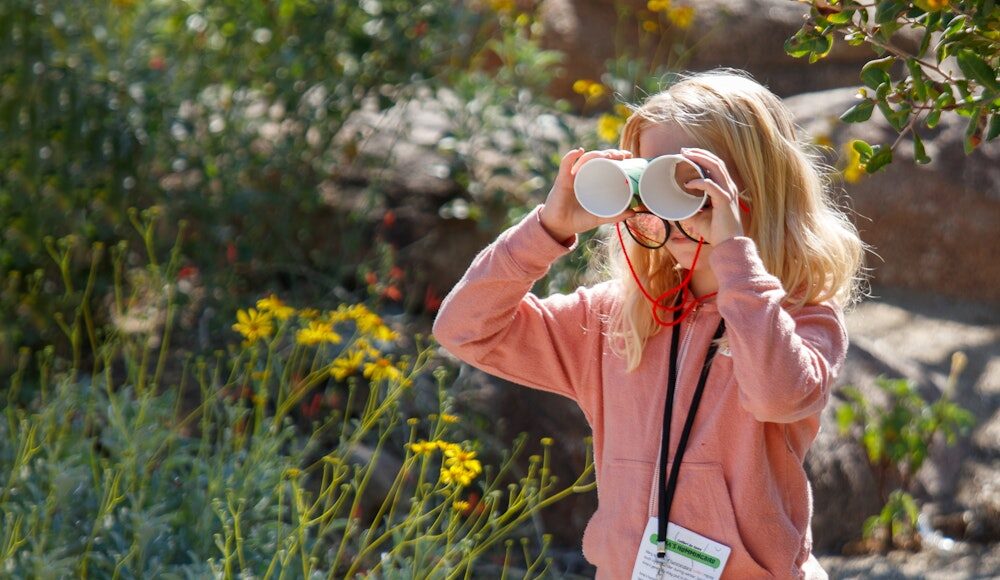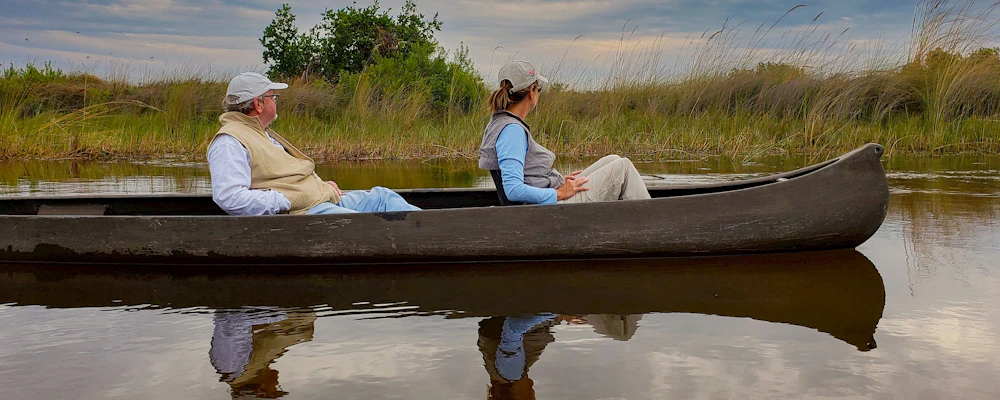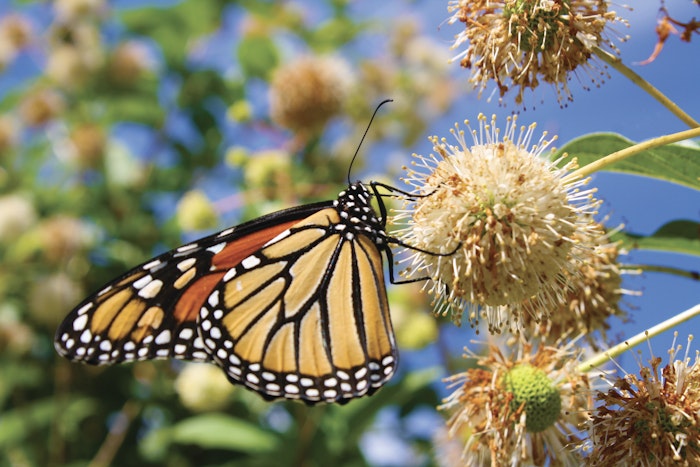Western monarchs have left their overwintering sites and are out in search of food and mates. This is the time to think about whether your garden helps feed the butterflies! Here in Coachella Valley, we are in the unique position of being one of the first stop-over locations for monarchs as they awake from their winter slumber and begin their migration North and East. Experts consider California one of the most important locations for monarchs to refuel after their winter slumber.
Butterflies favor plants with bright clusters of flowers or tubular shaped flowers for nectar. Don’t forget milkweed, the only species on which monarchs lay their eggs. These black and orange beauties need our help to ensure they have safe and abundant plants to fuel their migration and mating. Many store-bought plants contain pesticides that can be harmful to pollinator insects like the monarch, so make sure you ask questions about the plants you buy to ensure that they are pesticide-free and native to your region. While we want people to plant more native nectar plants, it is imperative that those plants are safe for pollinators.
As human development expands and historic habitat spaces shrink, more and more pollinators rely on habitats in urban areas and those integrated amongst human-dominated landscapes. This means that while the majority of issues leading to pollinator decline are human based, people can also be part of the solution!
To protect and restore pollinator populations within and through the Coachella Valley, The Living Desert has started the Pollinator Pathway Project. The project includes the creation of pollinator gardens, removing water-hungry turf grass, and engaging local communities to support pollinators. Our East Valley Pollinator Pathway Project, funded by the Coachella Valley Mountain Conservancy, aims to enhance the availability and diversity of safe nectar and host plants for pollinators within the valley. Through the creation of these gardens, The Living Desert hopes to plant enough patches of pollinator-friendly habitat to restore habitat connectivity for pollinators moving within and through the valley. The pollinator gardens will be installed in various schools and community spaces in Coachella, Mecca, Thermal, and Indio. Our team will work alongside educators and community members to design and tailor the gardens to the sites’ specific needs.
Community engagement is a huge priority for The Living Desert and helps drive our mission forward. The native gardens that we will help create will act as sites for educators to engage with students on the value of native plants for water and biodiversity conservation, as well as their connection to native pollinators. By engaging today’s youth in an integrated fashion, we hope to install a passion for building climate resilience and conserving biodiversity and native wildlife. We are in the process of developing pollinator and native plant-based curriculum, designing the gardens alongside several schools in the East Valley, and propagating the native plants that will fill the gardens. This project is coordinated by the two of us– Emily “Lou” Thomas, Lead Conservation Biologist, and Lexi Beaty, Assistant Conservation Biologist.
Working together in our communities will increase the survival rates of our native pollinators, like the western monarch. Help The Living Desert feed pollinators, like the migrating monarch butterfly, by providing safe, native nectar sources at your home or community garden. Add in a few native milkweeds on which monarchs can lay their eggs! Looking for inspiration and direction to create your own pollinator-friendly garden? Check out our native plant guide, come buy plants at our gift shop, and visit our world-renowned botanical gardens here at The Living Desert for inspiration!





